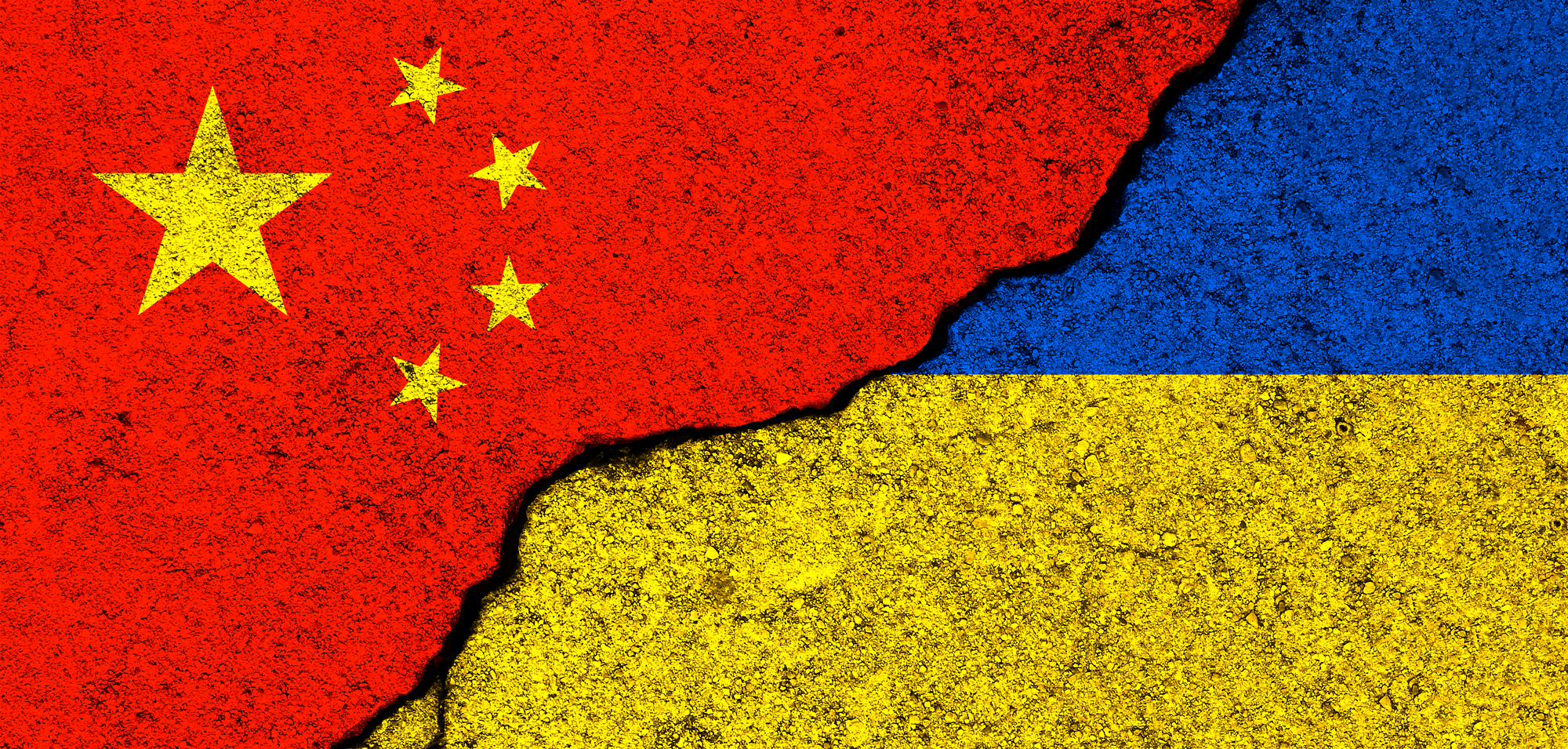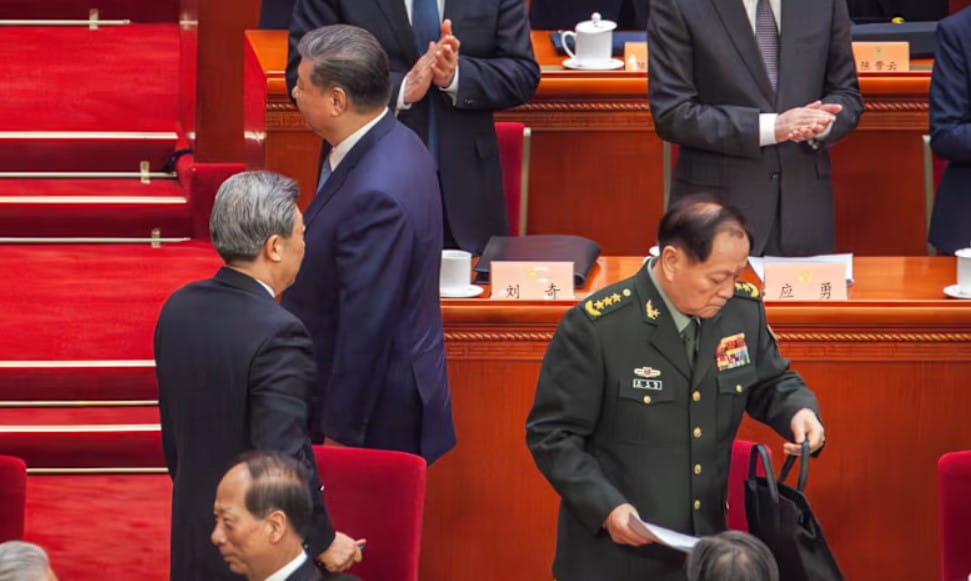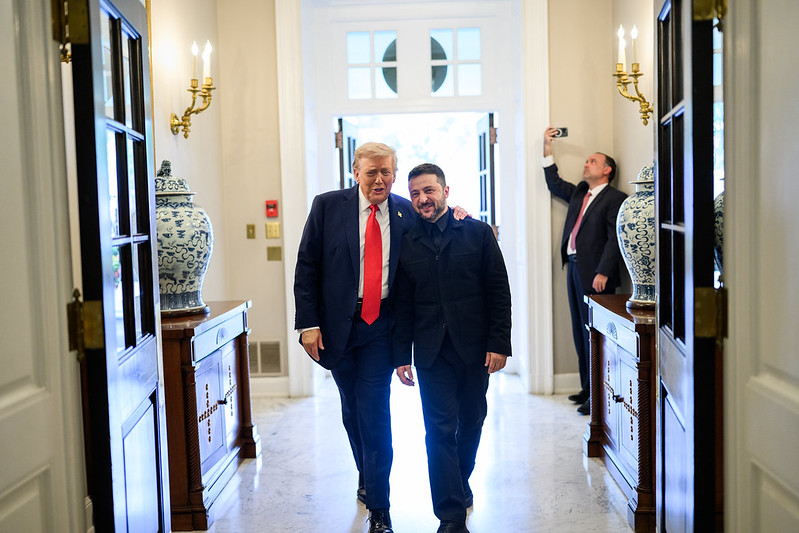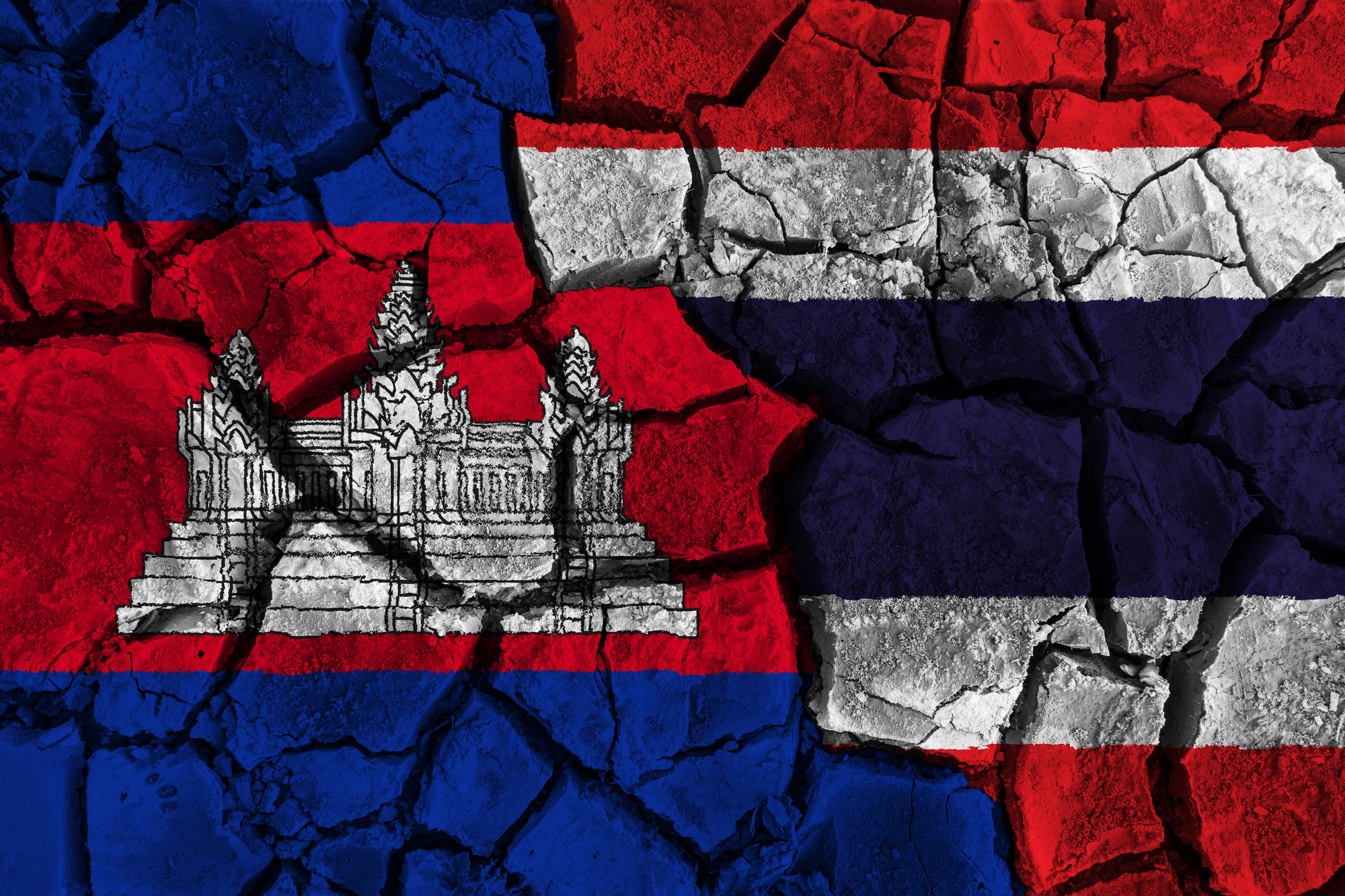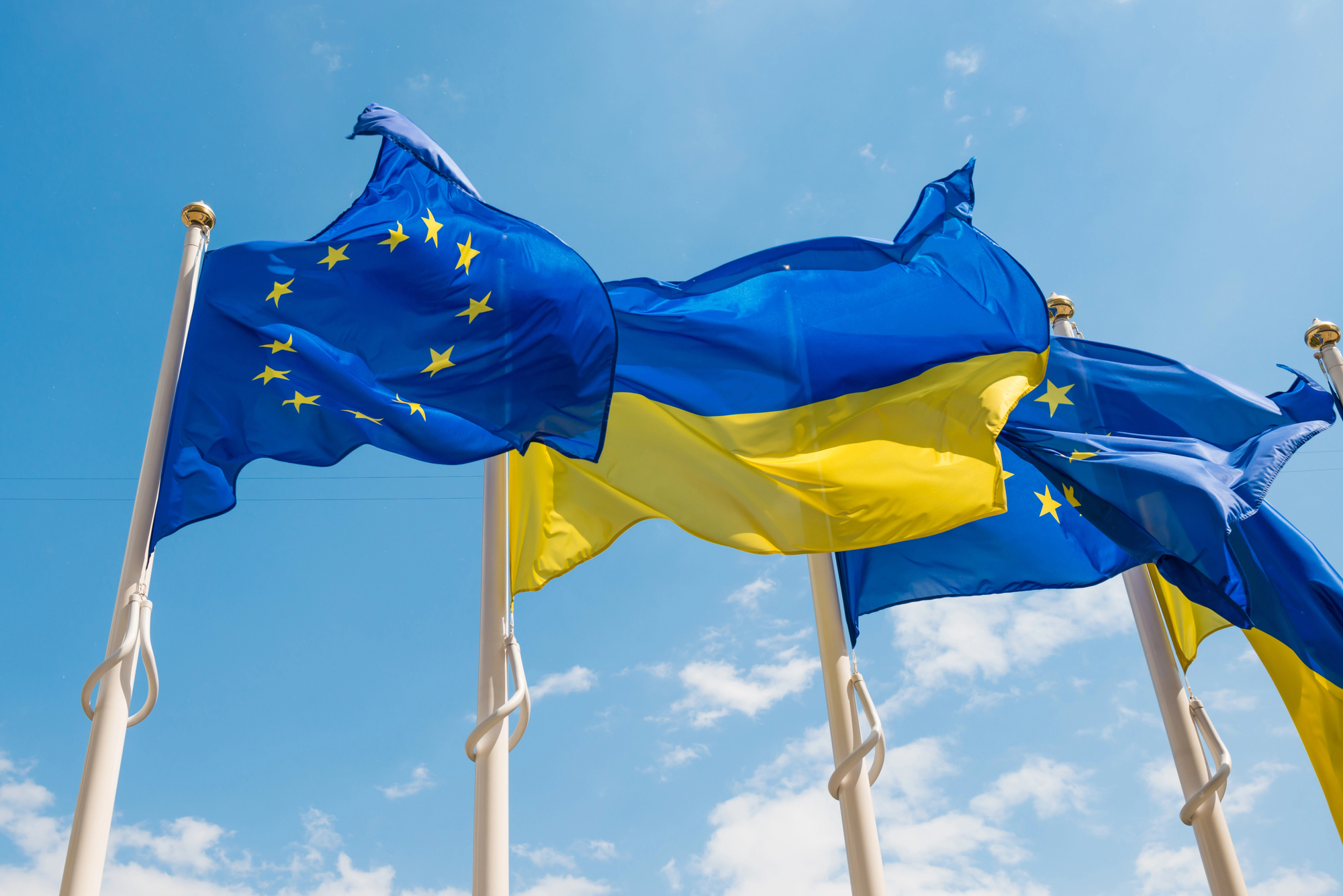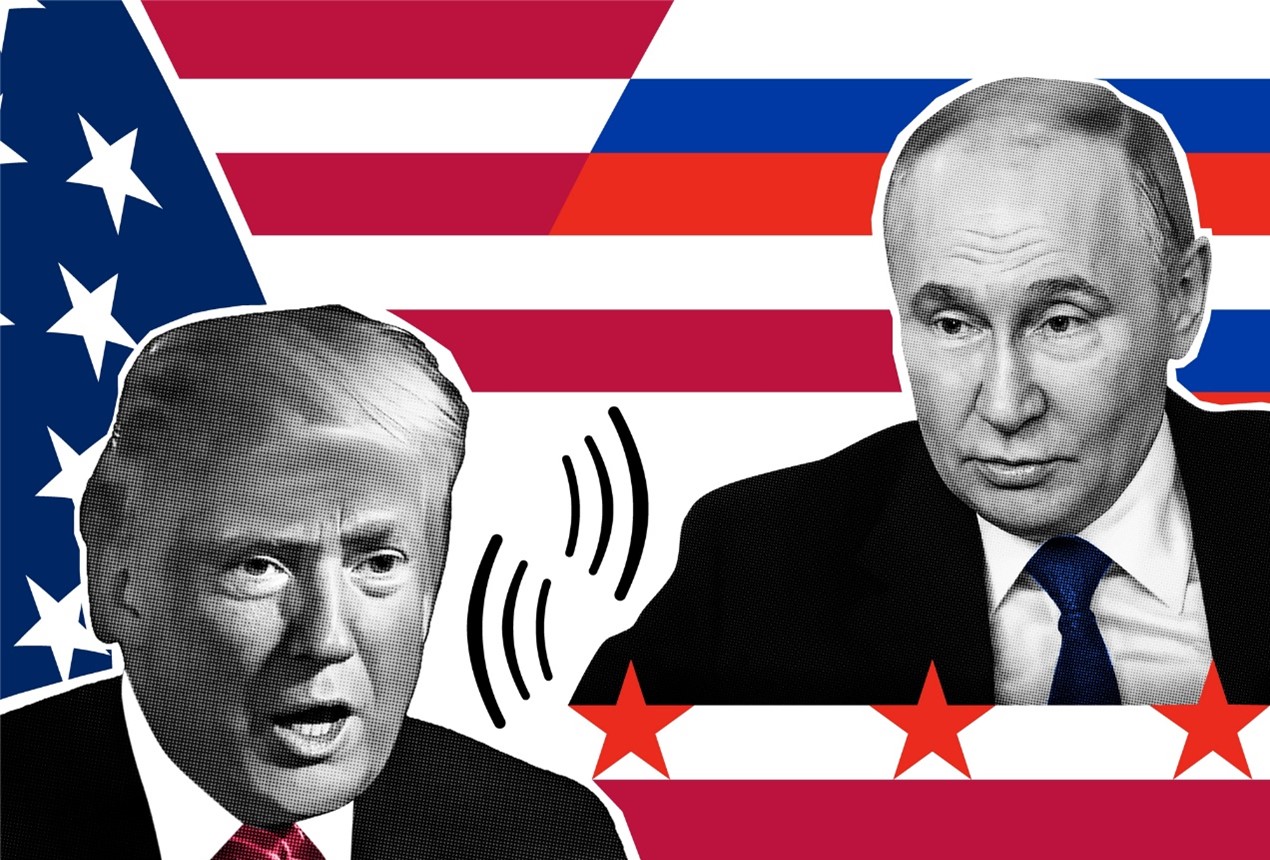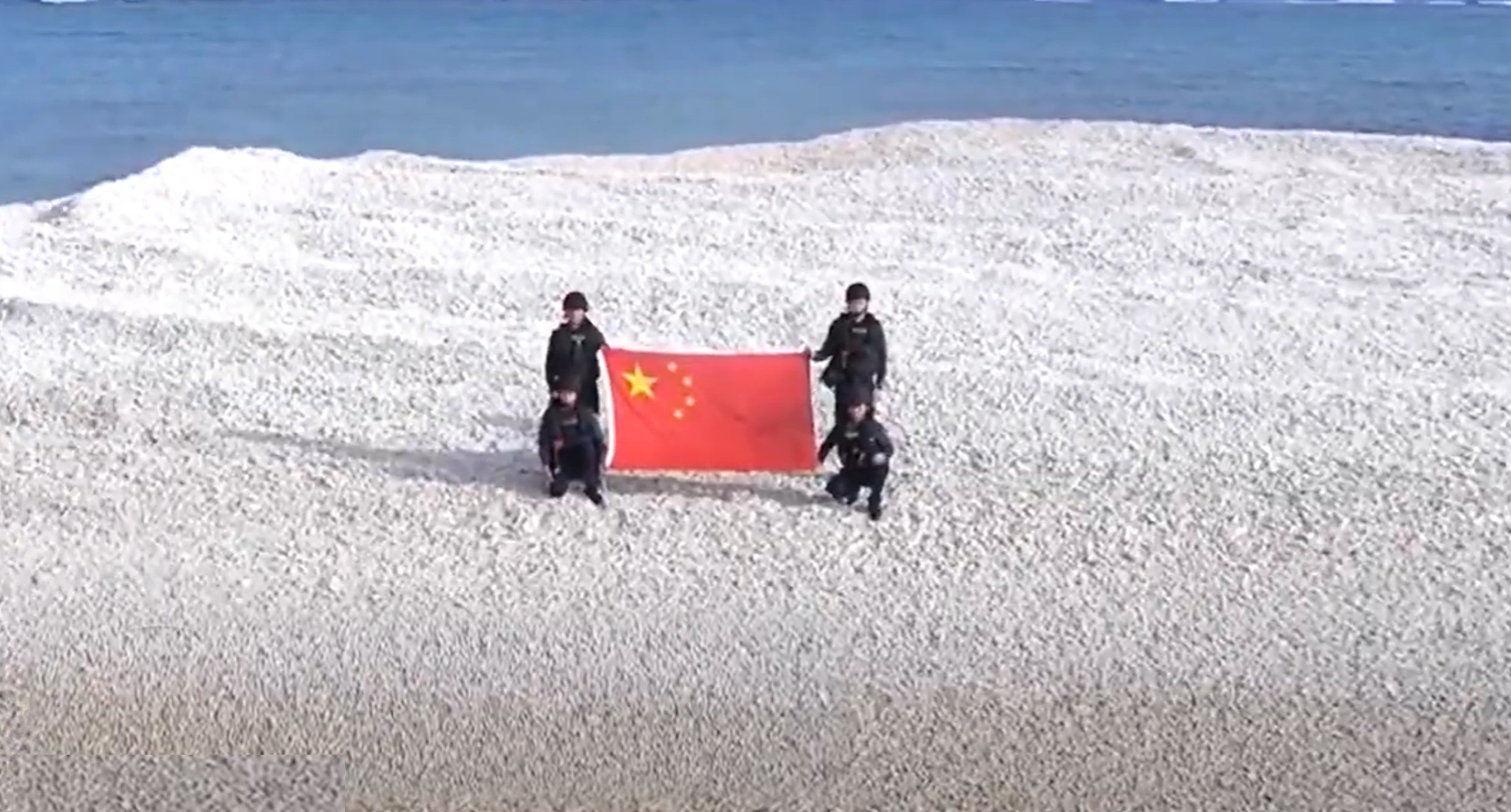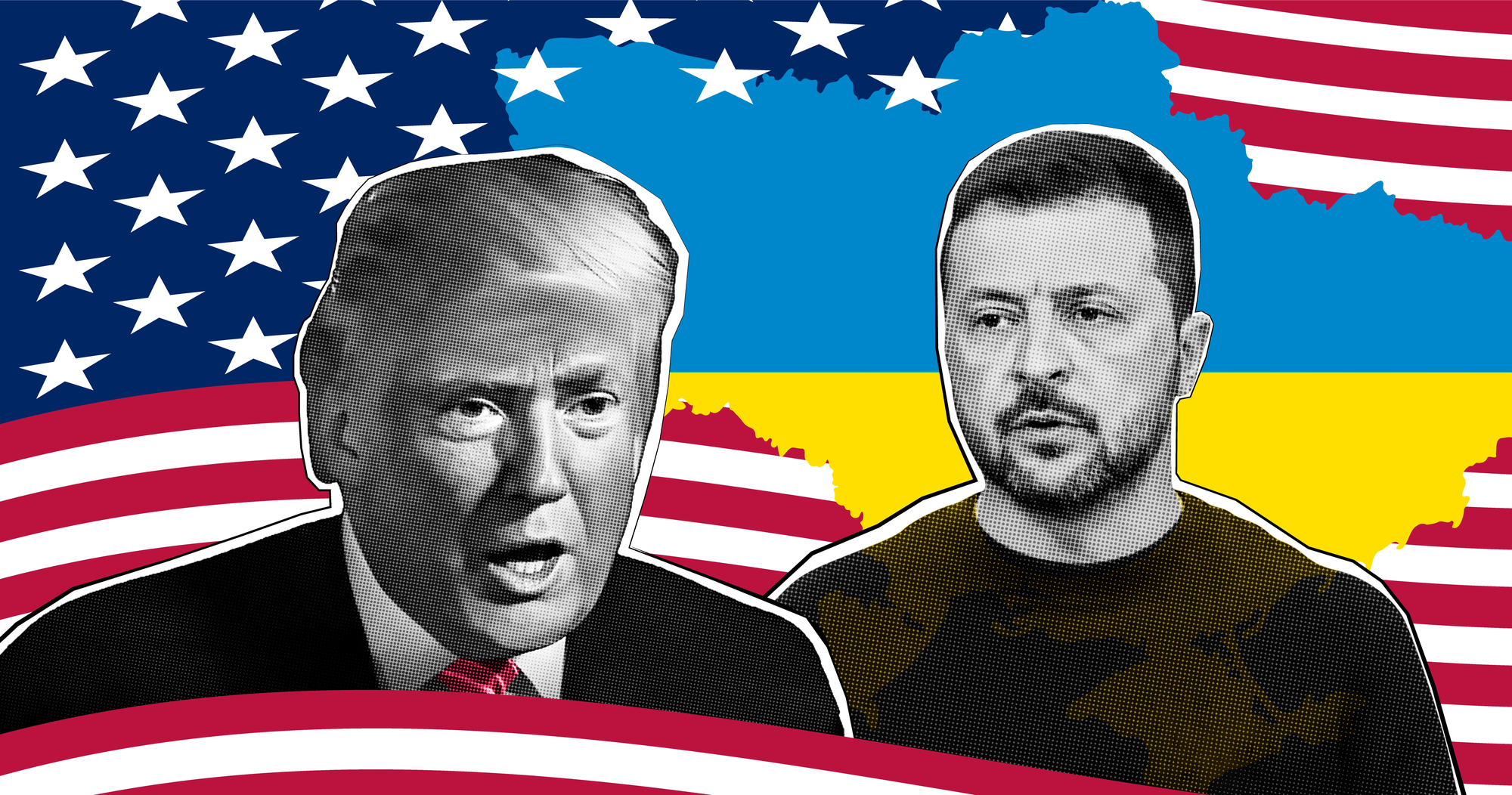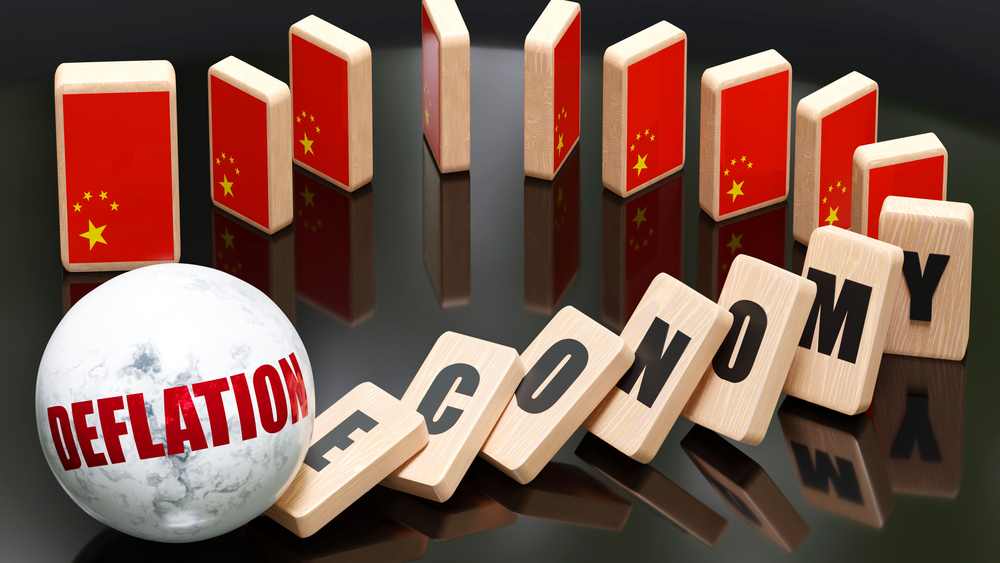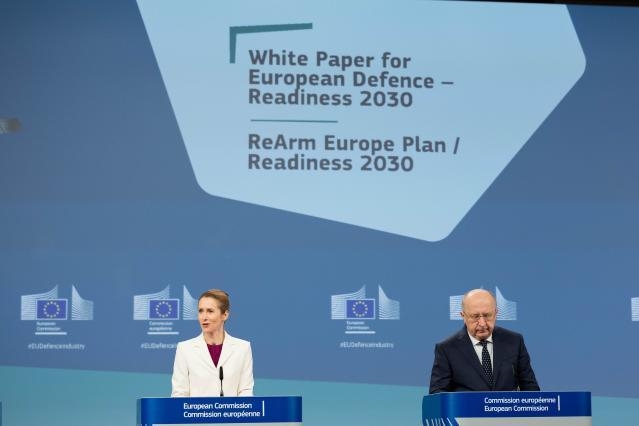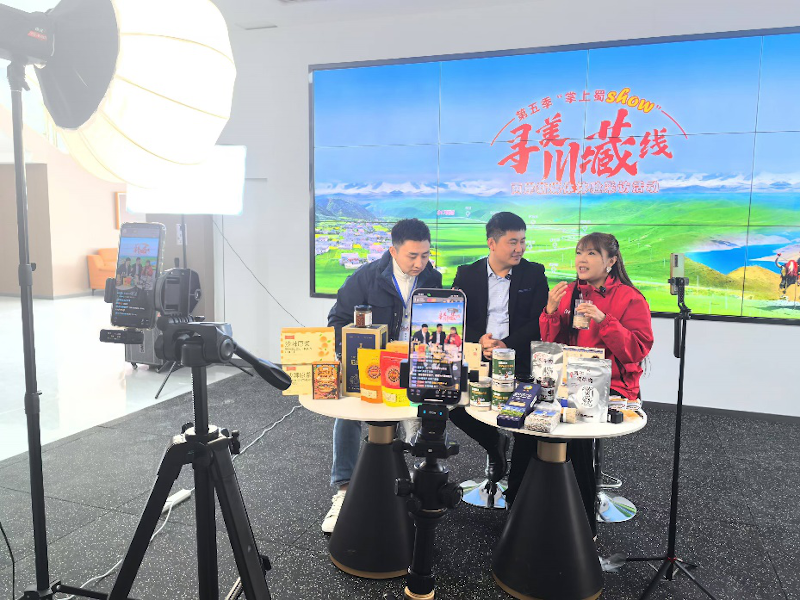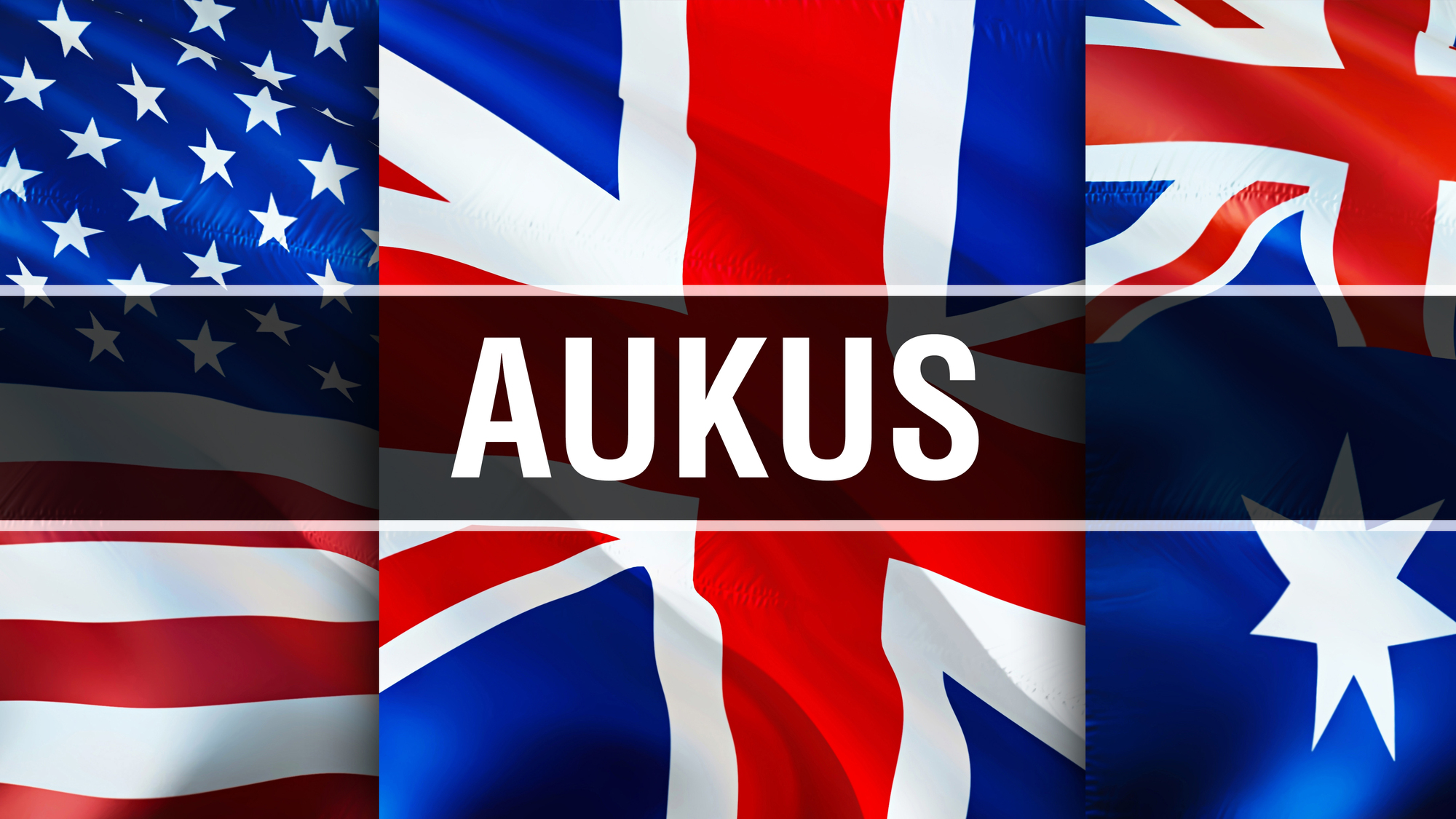Support Behind the Façade of Neutrality: How China Shapes the Course of the Russia-Ukraine War
Xi’s participation in the May 9 Victory Day parade in Moscow was more than a gesture of support for Putin; it marked an affirmation of deepening ideological and geopolitical coordination between authoritarian regimes. Beijing’s formal “neutrality” is a mask that conceals its active role in supporting the emerging “axis of revisionism” and in reshaping the global balance of power to its advantage. Picture source: Depositphotos.
Prospects & Perspectives No. 30
Support Behind the Façade of Neutrality: How China Shapes the Course of the Russia-Ukraine War
By Nataliya Butyrska
As Ukraine and its Western partners seek to achieve a ceasefire in the Russia-Ukraine war, growing attention is being directed at China’s role and its influence over Russian President Vladimir Putin. Following the negotiations between Russia and Ukraine in Istanbul, as well as a series of statements by Putin that revealed the Kremlin’s lack of genuine interest in ending the war, the governments in Kyiv, Warsaw, and other European capitals have called on Beijing to take tangible steps toward pressuring Russia into peace.
Since the outset of the war, China has sought to balance its support for Russia with a formal posture of neutrality and peace initiatives. However, it has become increasingly clear that Beijing serves as a critical pillar of Moscow’s ability to sustain a war of attrition — through expanding energy trade, the provision of dual-use goods, and diplomatic shielding in international institutions. To a significant extent, China’s stance determines whether Vladimir Putin is inclined to pursue a political settlement or, conversely, to prolong the conflict.
From the Narrative of Victory to Strategic Coordination
Xi Jinping’s presence at the May 9 Victory Day parade in Moscow served as a powerful symbol of external political legitimization for Putin, a demonstration of strategic coordination between China and Russia, and a message to the West that efforts to isolate the Kremlin have failed. Xi not only filled the vacuum left by the absence of leaders from major global powers but also helped bolster Putin’s negotiating position regarding the terms of ending the Russia-Ukraine war.
In the joint statement released following the summit between the two leaders, Beijing endorsed the Kremlin’s core narratives regarding the so-called “Ukrainian crisis,” emphasizing the need to address its “root causes” and uphold the principle of “indivisible security,” taking into account the “legitimate interests and concerns of all countries.” These terms are consistently used by the Kremlin to justify its unprovoked aggression against Ukraine while simultaneously advancing unrealistic conditions for peace that, in effect, imply Ukrainian capitulation.
Officially, Chinese authorities continue to assert their support for all efforts aimed at promoting peace and express hope that “relevant parties will continue to work towards a fair, lasting and binding peace agreement that can be accepted by parties concerned through dialogue and negotiation, and ultimately realize the political settlement of the crisis.” However, in practice, China has shown little willingness to take concrete steps toward a just peace based on the UN Charter and the principles of international law.
The joint commemoration of the World War II victory anniversary was not only a display of growing strategic alignment between Beijing and Moscow across political, military, and diplomatic dimensions, but also an ideological statement grounded in a shared historical narrative. By portraying themselves as the principal victors of World War II, China and Russia seek to legitimize their current territorial claims — Beijing’s toward Taiwan and the Kremlin’s toward Ukraine — as continuations of a historical struggle for justice. Putin frames the war against Ukraine as a fight against “neo-Nazism,” while Xi presents “reunification” with Taiwan as an integral part of the post-WWII settlement and global order. Both regimes employ rhetoric centered on opposing “unilateralism,” “hegemony,” and “Western bullying” to mask their revisionist ambitions aimed at undermining the foundations of the current international order and promoting a “more just multipolar world” aligned with their strategic interests.
Economic Dependence and Geopolitical Interests
Despite their close engagement with Moscow, Chinese authorities consistently reject accusations of supporting Russia, maintaining a stance of formal neutrality and presenting themselves as a responsible global actor. Nevertheless, over more than three years of full-scale war, cooperation between the two countries has expanded significantly. China has become a critically important economic and technological partner for the Kremlin — importing Russian mineral resources (which accounted for 78% of Russian exports) and supplying strategically vital imports ranging from machine tools and microchips to components used in Russian drones and missiles, including antennas, chips, and generators. According to EU estimates, up to 80% of dual-use goods entering Russia originate from China.
At the same time, Ukrainian forces have captured Chinese mercenaries fighting on Russia’s side, some of whom were recruited via Chinese social media platforms such as TikTok and Kuaishou. Ukrainian President Volodymyr Zelensky has also reported instances of direct military-industrial cooperation between China and Russia, including the supply of gunpowder, artillery, and co-production of weaponry on Russian territory.
A recent report by the Bank of Finland Institute for Emerging Economies concluded that Russia’s invasion of Ukraine, combined with the tightening of sanctions imposed by a coalition of advanced economies, has significantly deepened Russia’s economic dependence on China. Even if Western sanctions were eventually lifted, Russia is expected to continue seeking closer economic ties with Beijing. Chinese companies have already secured a strong foothold in the Russian market, and the lifting of sanctions could further enhance their position, as Chinese firms would be able to benefit from established networks without the risk of secondary sanctions. This dependency is especially evident in Russia’s increasing reliance on the Chinese yuan. The share of yuan in Russia’s foreign currency reserves rose from 3% in 2017 to 17% in 2021, and following the 2022 sanctions, Russia now holds much of its reserves in yuan and gold. The Russian Central Bank conducts most of its foreign exchange operations in yuan, and by 2024, the yuan accounted for roughly one-third of Russia’s external trade.
This growing asymmetry in the bilateral relationship has forced Moscow to make concessions to Beijing in several areas, providing Xi with leverage over Putin in relation to ending the war. However, from the outset, China has viewed the Russia-Ukraine war primarily through the lens of its strategic rivalry with the United States — with its partnership with Russia serving as a critical tool in advancing its own geopolitical objectives.
For China, support for Russia has become a profitable investment. Moscow’s actions have severely undermined the foundations of international law and the rules-based order. Russia’s war against Ukraine continues to drain Western resources, while the return of Donald Trump to power in the United States has exacerbated transatlantic divisions, further weakening American global leadership and creating new opportunities for Beijing to expand its influence.
Beijing’s Mask of Neutrality
In effect, China has become one of the key beneficiaries of Putin’s war. Still, growing tensions with the West over support for Russia — particularly among European countries — and the looming threat of secondary sanctions have compelled Beijing to pursue a dual-track strategy. On the one hand, it opposes “unilateral” sanctions not endorsed by the UN Security Council and defends the right to conduct “normal exchanges” and bilateral cooperation with Moscow. On the other, it distances itself from Russia’s actions, hiding behind the mask of non-involvement and a simulated commitment to the “political resolution of the crisis in Ukraine.”
This strategy has allowed China to retain maneuvering space in its relations with Ukraine and its European partners, who continue to hope that Beijing might use its influence over Putin to bring the war to an end and prevent deeper military support for Russia. These hopes, however, have proven unfounded. Despite sustained Western pressure, Beijing continues to provide systematic support to Moscow, viewing Russia’s aggression as both a means of weakening the West and a source of strategic insight — particularly in the context of a potential military scenario concerning Taiwan. For China, the Russia-Ukraine war has served as a real-world testing ground for assessing the effectiveness of sanctions, the military endurance of Western states, and the capacity of the U.S. and its allies to sustain long-term support for partners — crucial factors in calculating the risks of applying coercive force in its future geopolitical conflicts.
Xi’s participation in the May 9 Victory Day parade in Moscow was more than a gesture of support for Putin; it marked an affirmation of deepening ideological and geopolitical coordination between authoritarian regimes. Beijing’s formal “neutrality” is a mask that conceals its active role in supporting the emerging “axis of revisionism” — involving Russia, North Korea, and Iran — and in reshaping the global balance of power to its advantage.
(Nataliya Butyrska is Associated Senior Fellow, New Europe Centre, Ukraine)


